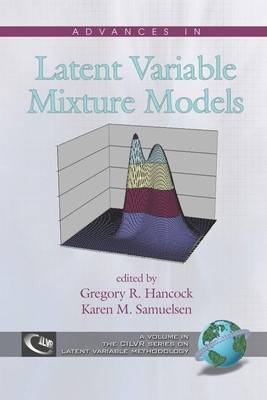
- We will send in 10–14 business days.
- Publisher: Information Age Publishing
- Year: 2007
- Pages: 384
- ISBN-10: 1593118473
- ISBN-13: 9781593118471
- Format: 15.6 x 23.4 x 2 cm, softcover
- Language: English
- SAVE -10% with code: EXTRA
Advances in Latent Variable Mixture Models (PB) (e-book) (used book) | bookbook.eu
Reviews
Description
The current volume, Advances in Latent Variable Mixture Models, contains chapters by all of the speakers who participated in the 2006 CILVR conference, providing not just a snapshot of the event, but more importantly chronicling the state of the art in latent variable mixture model research. The volume starts with an overview chapter by the CILVR conference keynote speaker, Bengt Muthén, offering a "lay of the land" for latent variable mixture models before the volume moves to more specific constellations of topics. Part I, Multilevel and Longitudinal Systems, deals with mixtures for data that are hierarchical in nature either due to the data's sampling structure or to the repetition of measures (of varied types) over time. Part II, Models for Assessment and Diagnosis, addresses scenarios for making judgments about individuals' state of knowledge or development, and about the instruments used for making such judgments. Finally, Part III, Challenges in Model Evaluation, focuses on some of the methodological issues associated with the selection of models most accurately representing the processes and populations under investigation. It should be stated that this volume is not intended to be a first exposure to latent variable methods. Readers lacking such foundational knowledge are encouraged to consult primary and/or secondary didactic resources in order to get the most from the chapters in this volume. Once armed with that basic understanding of latent variable methods, we believe readers will find this volume incredibly exciting.
EXTRA 10 % discount with code: EXTRA
The promotion ends in 17d.01:28:20
The discount code is valid when purchasing from 10 €. Discounts do not stack.
- Publisher: Information Age Publishing
- Year: 2007
- Pages: 384
- ISBN-10: 1593118473
- ISBN-13: 9781593118471
- Format: 15.6 x 23.4 x 2 cm, softcover
- Language: English English
The current volume, Advances in Latent Variable Mixture Models, contains chapters by all of the speakers who participated in the 2006 CILVR conference, providing not just a snapshot of the event, but more importantly chronicling the state of the art in latent variable mixture model research. The volume starts with an overview chapter by the CILVR conference keynote speaker, Bengt Muthén, offering a "lay of the land" for latent variable mixture models before the volume moves to more specific constellations of topics. Part I, Multilevel and Longitudinal Systems, deals with mixtures for data that are hierarchical in nature either due to the data's sampling structure or to the repetition of measures (of varied types) over time. Part II, Models for Assessment and Diagnosis, addresses scenarios for making judgments about individuals' state of knowledge or development, and about the instruments used for making such judgments. Finally, Part III, Challenges in Model Evaluation, focuses on some of the methodological issues associated with the selection of models most accurately representing the processes and populations under investigation. It should be stated that this volume is not intended to be a first exposure to latent variable methods. Readers lacking such foundational knowledge are encouraged to consult primary and/or secondary didactic resources in order to get the most from the chapters in this volume. Once armed with that basic understanding of latent variable methods, we believe readers will find this volume incredibly exciting.


Reviews